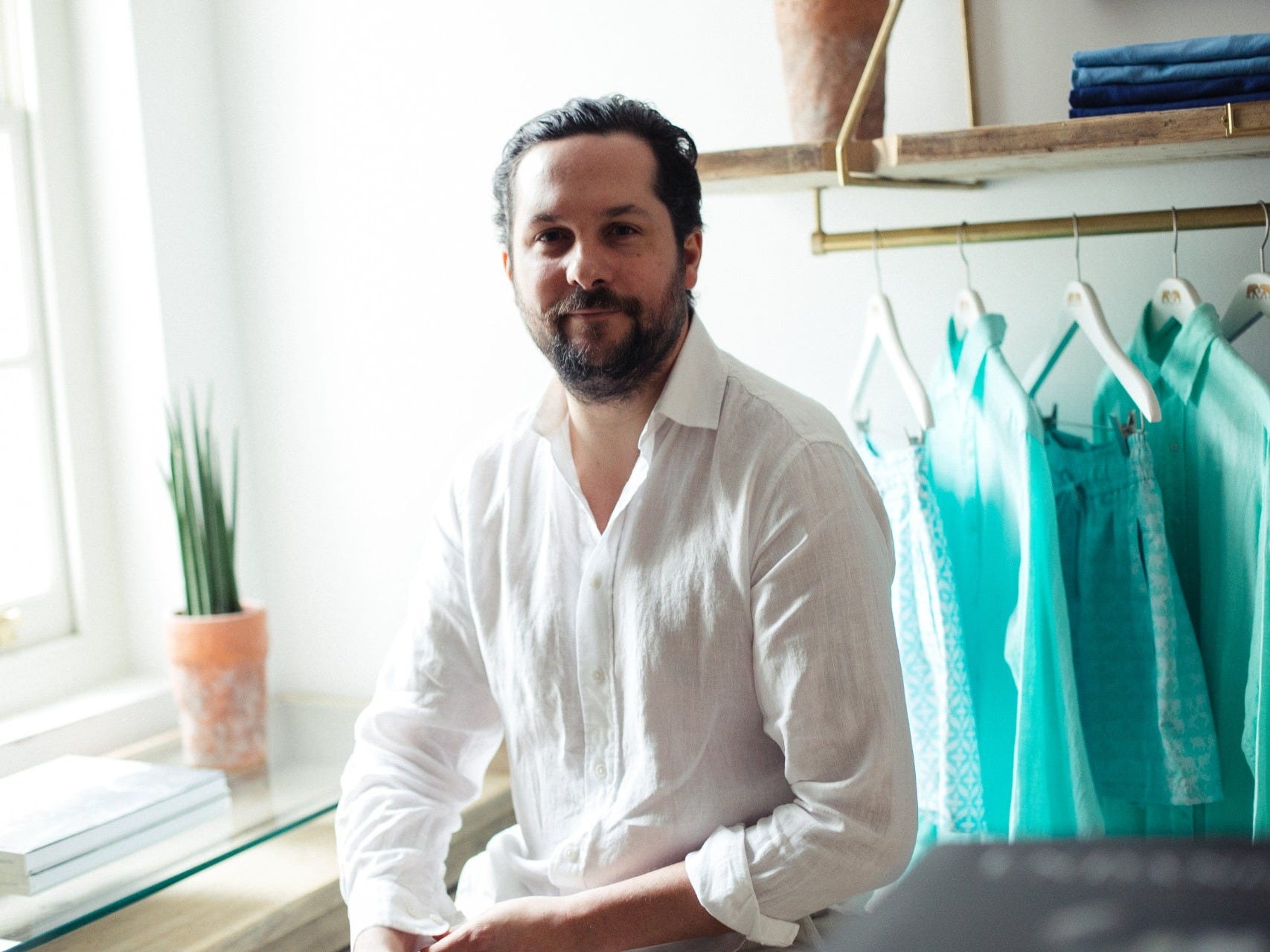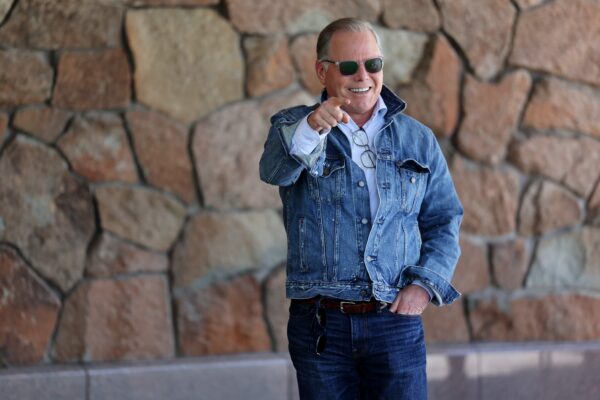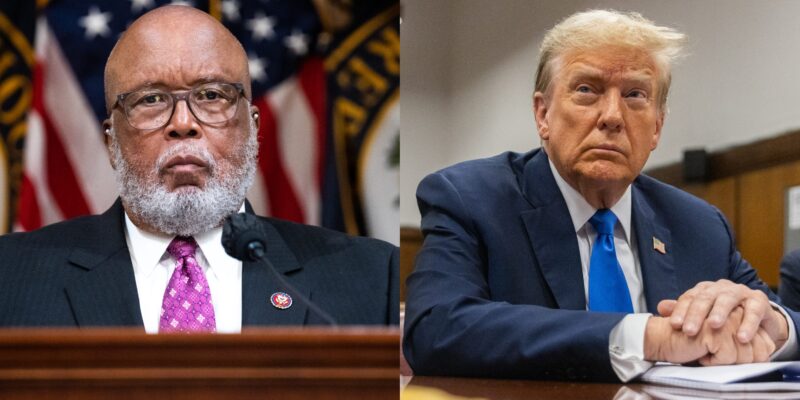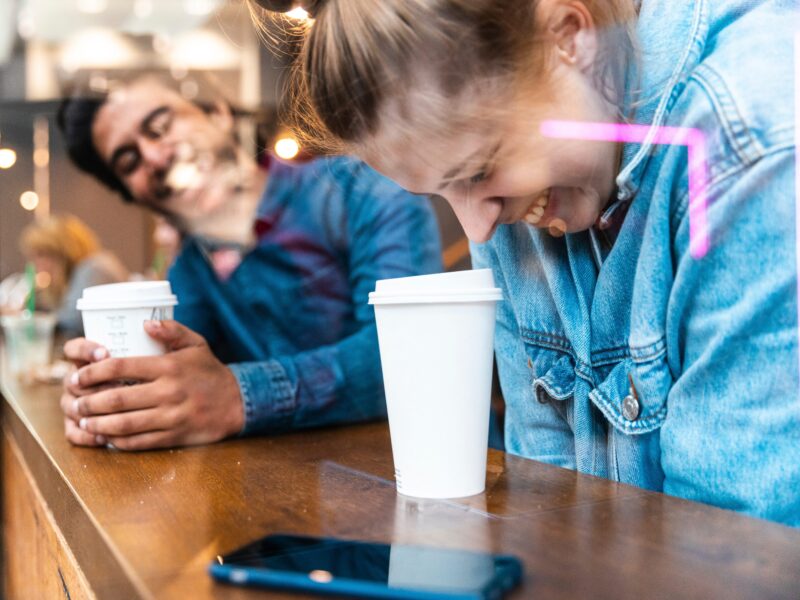- Oliver Tomalin and his wife Rose are the founders of UK-based swimwear company Love Brand.
- Love Brand prides itself on being rooted in environmentalism, creating products made with sustainable materials and donating a portion of its proceeds to elephant conservation.
- In an interview with Business Insider, Tomalin talks about his entrepreneurial journey and his mission to raise awareness about the dwindling population of the world’s elephants.
- This is part of Business Insider’s “The Style Series,” highlighting fashion entrepreneurs around the world.
- Visit Business Insider’s homepage for more stories.
Love Brand, a men’s swimwear line founded in 2010 by Oliver Tomalin, wants to save the elephants.
The brand’s mission is to help raise awareness about elephant conservation efforts; it also donates a portion of its revenues to charities and causes focused on preserving the elephant population.
But the man behind Love Brand didn’t set out intending to start a business rooted in environmentalism – or even to helm a swimwear company. Tomalin, who dropped out of Edinburgh University, studied architectural design. His first major business venture was a shoe company, before he and his now-wife Rose decided to pivot to making swimsuits.
In an interview with Business Insider, Tomalin recounts his entrepreneurial journey and explains why he eventually decided to focus his brand on elephant conservation.
On his background:

"I was born in Hong Kong and my parents traveled the world."
I was very lucky to live all over the world, from Hong Kong to Japan. But I went to school in the UK most of my adult life, and I've married an English person and we used to live in London. We just moved to the countryside with our two small children.
"I studied architecture at Edinburgh University - architectural design."
I didn't finish the full seven-year course, but I did the first part and I loved it. It was actually one of the greatest decisions I made. Before that, I was pursuing a career in fine art, but then I decided to study architecture instead.
It was that kind of rigor - and it being a much more wide-ranging course and a different kind of creativity - which ignited other curiosities in me that I didn't realize I had.
"The first step of my career was the decision not to pursue my architecture degree and to go to Spain."
I made friends with some guys in Spain and they had a friend who had a factory. I started making espadrilles, and I started selling them - there was a demand for them in the UK. I set up a little store on Portobello Road in Notting Hill, London, selling these shoes in all of these amazing colors.
I loved the whole experience of it. It was the beginning of my journey toward starting a swimwear brand.
On pivoting from shoes to swimwear:
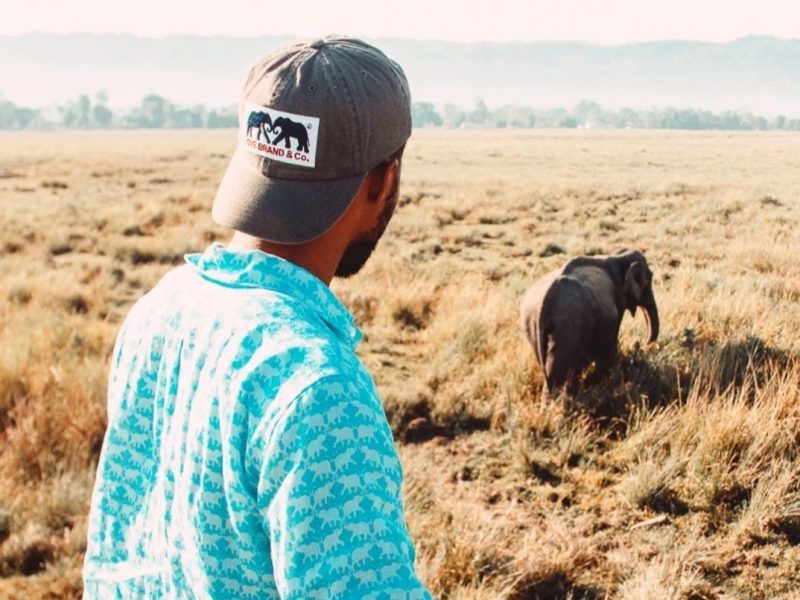
"There was a bit of lacking the patience to stick out the whole architectural degree."
I always had that kind of artist-meets-entrepreneurial-spirit as a child. And then I have a traveling spirit as well. I found it really exciting to go to the North of Spain and the South of France and find all of these artisanal shoemakers and start importing them into the UK and selling. And then I started selling online.
The first department store in the UK [that sold my shoes] was part of the John Lewis group [a British company that operates retailers including John Lewis & Partners department stores and Waitrose & Partners supermarkets]. And for me, that was a really exciting moment.
"But at the same time, I was thinking that swimwear could be an interesting space."
I wanted to develop more of a brand at the time, and I remember thinking that printed swimwear would allow me to keep my artistic roots and design the prints. And I could use the swimwear as a kind of canvas for that. But then, what would this business be about, you know, what would the concept be?
And this goes back to the architecture - the key was getting inspired by a lot of other amazing brands that were coming up that had "give back" concepts or real purpose.
"I wanted my new brand to be a positive brand."
I wanted the brand to have a positive impact, and I thought to myself, 'it would be amazing to have a kind of environmental impact.' And then in 2010, as I was walking, literally, out of my front door one day, there were these painted elephants all over London. And the messaging was quite clear that they're disappearing at a rapid rate, and I said, 'this is what [the brand] could represent."
When I was tossing all these ideas around and coming up with what is now Love Brand, I was also dating Rose, who's now my wife, and we designed the premise and parts of the brand together. I couldn't have done what we've achieved so far without her. She's quite pivotal to the successes that we've had so far.
"We have plans to expand our range within men's swimwear and also within some of the accessory lines we offer."
I do all of the designs for the brand ... We're going to leave womenswear to all of the other amazing designers out there. Even within men's designs, there are so many different consumers out there with thoughts of what looks good and what they want.
On Love Brand's mission to save the elephants:

"Now, it's all about the elephants."
We've committed a percentage of our revenue to elephant conservation. And when I speak to customers, I tell them that if they want to help elephants, they should know about the amazing charities that we work with. It's as much about [selling good products] as it is awareness as it is fundraising.
Habitat is the key issue. Those wild habitats are being interrupted by human development of infrastructure, and the elephants' migration paths are interrupted. For example, there can be a human-elephant conflict, which is the main threat to the African elephant. You obviously have poaching, and all the associated issues with the illegal trade of wildlife.
"Brands have such a huge responsibility to do this more and more."
When we have a choice to make [in business], we look for the most environmentally friendly option ... All brands have this responsibility and this opportunity, I should say, to raise awareness and to potentially also fundraise through its platform.
I think we've all got a responsibility to remember to use the tools and the platforms that we have to promote mindfulness of the natural world. And in our case, we've evolved our business to produce things in the best way we can to be as environmentally friendly as we can. I think that's a really important pledge that we've made and that we're doing.
"This entire project has been invested in by myself and my family."
We currently have two stores in London and in Barbados, the place where my father and mother lived before I was born, and where my sister was born. It's really a family business. It's really been a case of justifying the investment, the seed investment originally, and then the ongoing investment as we grow the business.
There have been some difficult times, and we've been learning on the job, and it's incredibly competitive. We've had financial difficulties since 2008 and the pandemic in recent months. But what has happened every year is that there's just been enough to keep going.

